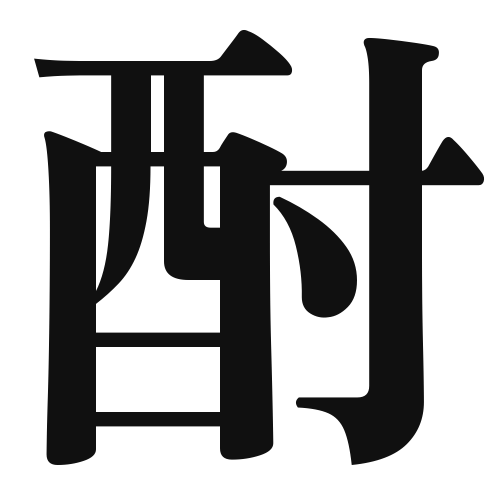1. Overview of Meaning
The kanji “酎” (chuu) refers to a type of distilled alcoholic beverage, particularly in the context of Japanese sake or shochu. It is often associated with the act of drinking or the culture surrounding alcoholic beverages.
2. Formation and Radical
Formation of the Kanji: The kanji “酎” is a phonetic compound (形声文字), which combines elements that suggest both sound and meaning. The left part, “酉,” is a radical that relates to alcohol, while the right part provides the phonetic component.
Radical: The radical for “酎” is “酉,” which is commonly associated with fermented or alcoholic substances.
3. Examples of Usage
Common Words and Phrases: “酎” is often found in words like “焼酎” (shochu), which is a popular distilled spirit in Japan.
Example Sentences in Daily Conversation:
- 「今晩、友達と焼酎を飲みに行く予定です。」(I plan to go out for shochu with my friends tonight.)
- 「この酎はとても美味しいです。」(This shochu is very delicious.)
4. Synonyms and Antonyms
Similar Kanji: A similar kanji is “酒” (sake), which refers to alcoholic beverages in general, but does not specifically denote distilled spirits like “酎.”
Opposite Kanji: An antonym could be “水” (mizu), meaning water, which represents a non-alcoholic beverage.
5. Cultural and Historical Background
Relation to Japanese Culture: “酎” is deeply embedded in Japanese culture, particularly in social settings where drinking is a common practice. It reflects the importance of alcohol in Japanese traditions and celebrations.
Proverbs and Idioms: There are various Japanese proverbs related to drinking, such as “酒は百薬の長” (sake wa hyakuyaku no chou), which means “sake is the best of all medicines,” highlighting the cultural significance of alcohol in moderation.
